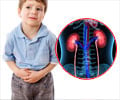
‘Decreases in excess mortality over time were observed for all ages and both during treatment with dialysis and during time with a functioning kidney transplant.’
Tweet it Now
Mortality Risk Assessment For All Age GroupsThe analysis included 1,938,148 children and adults diagnosed with kidney failure from 1995 to 2013. The change over any 5-year interval between 1995 and 2013 in the excess risk of kidney failure-related death varied by age, with decreases from 12% for 65-year-olds to 27% for 0-14-year-olds.
The mortality rate of those dying from renal failure for all ages and both during treatment with dialysis and during time with a functioning kidney transplant reduced. The largest relative improvements observed for the youngest individuals with a functioning kidney transplant. Absolute decreases in excess kidney failure-related mortality were greatest for the oldest patients.
"We showed that all age groups have had significant improvements in mortality risk over the past 22 years. Some of the improvements were due to improved access to kidney transplantation and to longer survival of kidney transplants, but there were also improvements that can only be attributed to improvements in the care provided to people treated with dialysis and to those with kidney transplants," said Dr. Foster.
"This is important given the huge investment of resources in caring for these patients; we have shown that these investments have made a difference."
Advertisement
"We discovered that young people in this age group had no improvements in mortality risk between 1995 and 2006, unlike all other age groups, but started to have significant improvements after 2006," said Dr. Foster. "This may be because healthcare professionals became more sensitized to these problems in the early 2000s and have changed the way they care for these young people."
Advertisement
Source-Eurekalert















